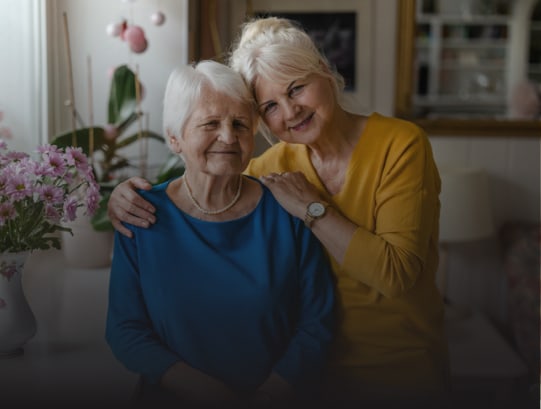Key Takeaways
Extreme fatigue in seniors can signal underlying health or lifestyle issues. Common causes include:
- Chronic medical conditions
- Sleep disorders
- Poor nutrition and dehydration
- Medication side effects
- Mental health challenges
Addressing fatigue involves consulting healthcare professionals, improving nutrition, encouraging physical activity, fostering social connections, and creating a sleep-friendly environment.
Understanding and addressing these factors can help seniors regain energy and maintain their independence.
Understanding Extreme Fatigue in Seniors: Causes and Solutions
Fatigue is a natural part of life, but when it becomes extreme and persistent, it can disrupt daily routines and raise concerns, especially for older adults.
For seniors, extreme fatigue often goes beyond the need for a good night’s sleep. It can signal underlying health conditions, lifestyle challenges, or emotional struggles that require attention and care.
If you or a loved one is experiencing fatigue that doesn’t improve with rest, understanding the potential causes and solutions, and that assisted living is an option, can make a world of difference.
What Is Extreme Fatigue?
Unlike ordinary tiredness, extreme fatigue doesn’t resolve with rest and can significantly impact daily life. It’s not just about feeling physically drained—it can also manifest as:
- Difficulty concentrating
- Lack of motivation
- Irritability or anxiety
- Trouble completing simple tasks
For seniors, this level of exhaustion can make it more challenging to stay engaged in social activities, maintain hobbies, or enjoy the moments that bring joy and purpose.
Common Causes of Extreme Fatigue in Seniors
While every individual is unique, certain factors are common contributors to fatigue in older adults. Here’s a closer look at the most frequent causes.
Chronic Medical Conditions
Many chronic illnesses are directly linked to fatigue. As we age, managing these conditions becomes increasingly essential. Common culprits include:
- Heart disease
- Reduced blood flow and oxygen circulation can leave individuals feeling drained
- Diabetes
- Fluctuating blood sugar levels often result in energy crashes
- Arthritis
- Chronic pain and inflammation can sap energy, especially when sleep is disrupted
- Thyroid dysfunction
- An underactive thyroid slows metabolism, leading to prolonged fatigue
If you suspect a medical condition is contributing to fatigue, consulting a healthcare provider is essential for proper management.
Sleep Disorders
Sleep quality often declines with age due to medical conditions, pain, or medication side effects. Common sleep disorders include:
- Insomnia, causing difficulty falling or staying asleep, can significantly impact mood, energy, and physical health over time
- Sleep apnea (breathing interruptions during sleep) reduces oxygen supply, leaving individuals exhausted even after a full night’s rest
Addressing sleep issues through medical evaluation and treatment can significantly improve energy levels.
Nutritional Deficiencies
A balanced diet is crucial for maintaining energy, but seniors often face challenges like reduced appetite or difficulty preparing meals. Key deficiencies linked to fatigue include:
- Iron (anemia)
- Reduces oxygen circulation
- Vitamin B12
- Impacts nerve function and energy levels
- Vitamin D
- Contributes to muscle weakness and fatigue
Regular check-ups and blood tests can help identify and address these deficiencies.
Dehydration
Seniors are more prone to dehydration, commonly due to a reduced sense of thirst or mobility challenges. Even mild dehydration can cause fatigue and mental fog. Encouraging consistent hydration is a simple yet effective way to combat preventable fatigue.
Medication Side Effects
Managing multiple prescriptions is common for older adults, but some medications can cause drowsiness, dizziness, or muscle weakness. Medications to watch include:
- Blood pressure drugs
- Sedatives
- Antihistamines
- Antidepressants
Reviewing medications with a healthcare provider can help identify and adjust treatments that may be contributing to fatigue.
Emotional Health: Depression and Loneliness
Fatigue isn’t always physical—it can stem from emotional challenges like depression, anxiety, or social isolation. These feelings often lead to lethargy and a lack of interest in activities.
Social interaction can have a revitalizing effect. Engaging in community events or spending time with loved ones can counteract loneliness and reignite energy.

Addressing Fatigue in Seniors
Extreme fatigue doesn’t have to be a permanent part of life. By addressing its root causes and making thoughtful changes, seniors can regain energy and maintain their independence.
Consult a Healthcare Professional
A thorough evaluation from a qualified professional can rule out or treat underlying medical conditions, adjust medications, and recommend tailored lifestyle changes.
Prioritize Nutrition
Encourage a diet rich in lean proteins, whole grains, fruits, and vegetables. For individuals with specific nutritional deficiencies, consuming nutrient-dense foods or taking doctor-prescribed supplements can be beneficial.
Meal services designed for seniors can also help provide consistent, balanced nutrition.
Encourage Physical Activity
Light to moderate exercise improves circulation, cardiovascular health, and mood. Activities like walking, yoga, or chair exercises can be both safe and effective. A fitness expert trained to work with older adults can help create a personalized plan.
Improve Sleep Quality
Creating a sleep-friendly environment can make restorative rest more achievable. Tips include:
- Maintaining a consistent sleep schedule
- Limiting screen time before bed
- Keeping the bedroom dark, quiet, and comfortable
For sleep disorders like sleep apnea, medical interventions, such as CPAP devices, can be helpful.
Foster Social Connections
Engaging with others can combat loneliness and provide emotional fulfillment. Local clubs, senior centers, or assisted living communities offer opportunities for meaningful interaction.
Address Emotional Well-Being
Counseling or support groups can provide valuable emotional support, helping seniors navigate challenges and regain a sense of purpose.
Regain Energy and Thrive
Extreme fatigue doesn’t have to define your or your loved one’s daily life. By understanding its causes and taking proactive steps, seniors can enjoy a more energized and fulfilling lifestyle.
At The Grande at South Portland, we’re here to help. Our assisted living community offers dining plans, medical monitoring, and opportunities for connection to support seniors in staying active and engaged. Schedule a visit with us to learn more about our services.









